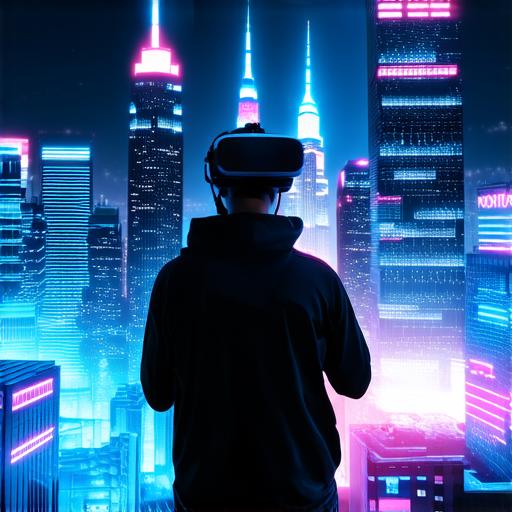
Why virtual reality is the future
Virtual Reality is also being used for job training and simulation. For example, firefighters can use VR simulations to practice responding to different scenarios, allowing them to be better prepared in real-life situations. Similarly, surgeons can use VR simulations to practice performing complex procedures, improving their skills and reducing the risk of errors.
Virtual Reality and the Future of Education: A Vision for a Better World
As technology continues to evolve, virtual reality will likely become an even more important tool for education. With VR, students can take virtual field trips that allow them to explore the world in ways that were previously impossible. For example, they can visit museums and historical sites without leaving their classrooms or even their homes.
Virtual reality can also be used for more than just exploration. Medical students, for example, can use VR simulations to practice surgeries and other medical procedures, allowing them to gain hands-on experience without putting patients at risk. Similarly, pilots can use VR simulations to practice flying in a safe and controlled environment.
Virtual Reality and the Future of Entertainment: A Vision for a Better World
As technology continues to evolve, virtual reality will likely become an even more important tool for entertainment. With VR, gamers can fully immerse themselves in a game and become part of the action, making games more engaging and interactive than ever before. This not only makes games more enjoyable but also opens up new possibilities for storytelling and game design.
Virtual reality is also being used for more than just gaming. The entertainment industry is using VR to create virtual concerts and other live events that allow people to experience music and art in a whole new way. This not only makes entertainment more accessible but also allows for more immersive experiences.
Virtual Reality and the Future of Travel: A Vision for a Better World
As technology continues to evolve, virtual reality will likely become an even more important tool for travel. With VR, people can take virtual trips to different parts of the world without ever leaving their homes or even their cities. This not only makes travel more accessible but also allows for more immersive experiences.
Virtual reality is also being used for more than just exploration. For example, hotels and resorts can use VR simulations to showcase their amenities and services, allowing guests to see what the surrounding area looks like without ever leaving their room. This not only gives guests a sense of the hotel’s offerings but also allows them to experience the local culture in a whole new way.
Virtual Reality and the Future of Healthcare: A Vision for a Better World

As technology continues to evolve, virtual reality will likely become an even more important tool for healthcare. With VR, medical professionals can use simulations to practice performing complex procedures, improving their skills and reducing the risk of errors. This not only makes healthcare safer but also more effective.
Virtual reality is also being used for more than just training. For example, patients with chronic pain can use VR simulations to distract themselves from their pain, allowing them to better manage their condition. Similarly, patients with anxiety disorders can use VR simulations to confront and overcome their fears in a safe and controlled environment.
Conclusion: Virtual Reality is the Future
Virtual reality technology has come a long way since its inception, and it’s now becoming an integral part of our lives. From gaming and entertainment to education and healthcare, VR is transforming the way we experience and interact with the world around us. With its ability to enhance our human experience, virtual reality has the potential to revolutionize every aspect of our lives. As technology continues to evolve, virtual reality will likely become an even more important tool for businesses, education, entertainment, travel, and healthcare.


